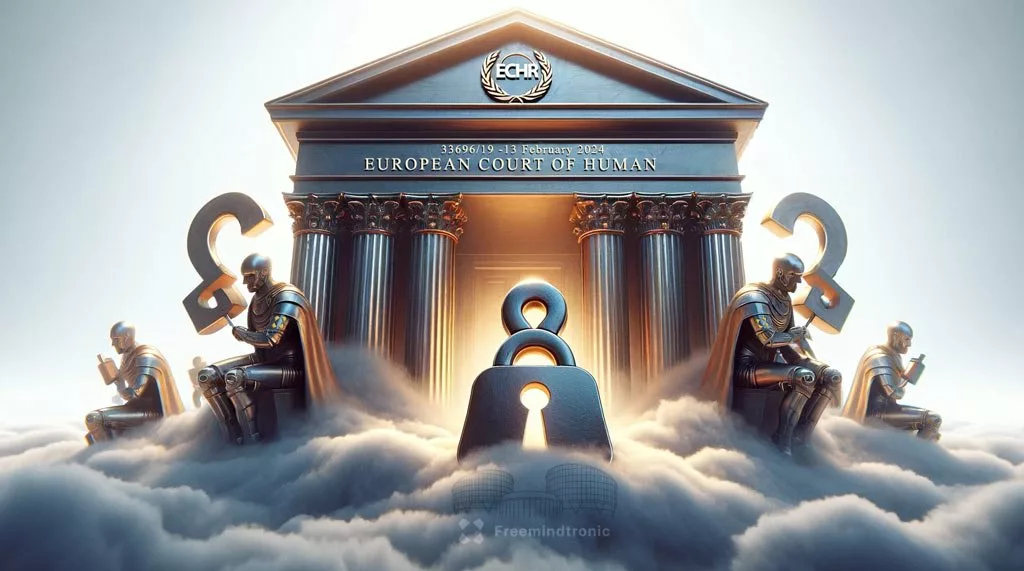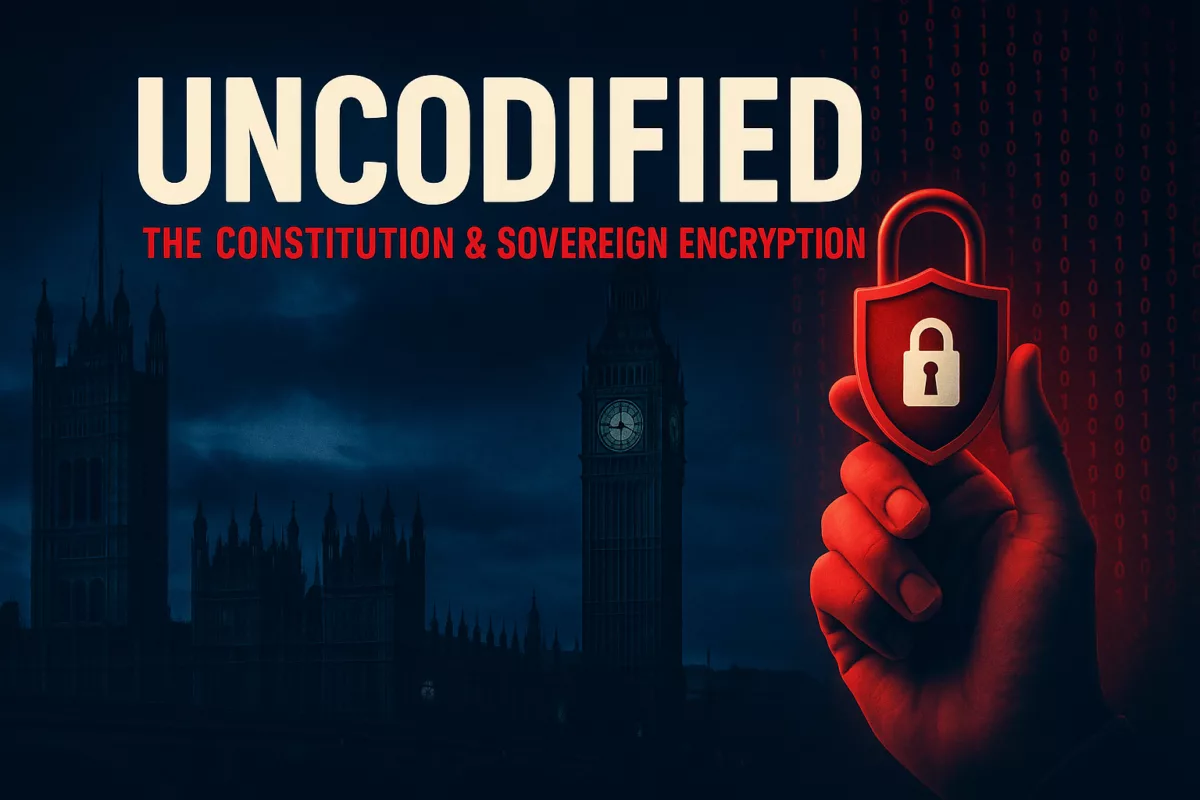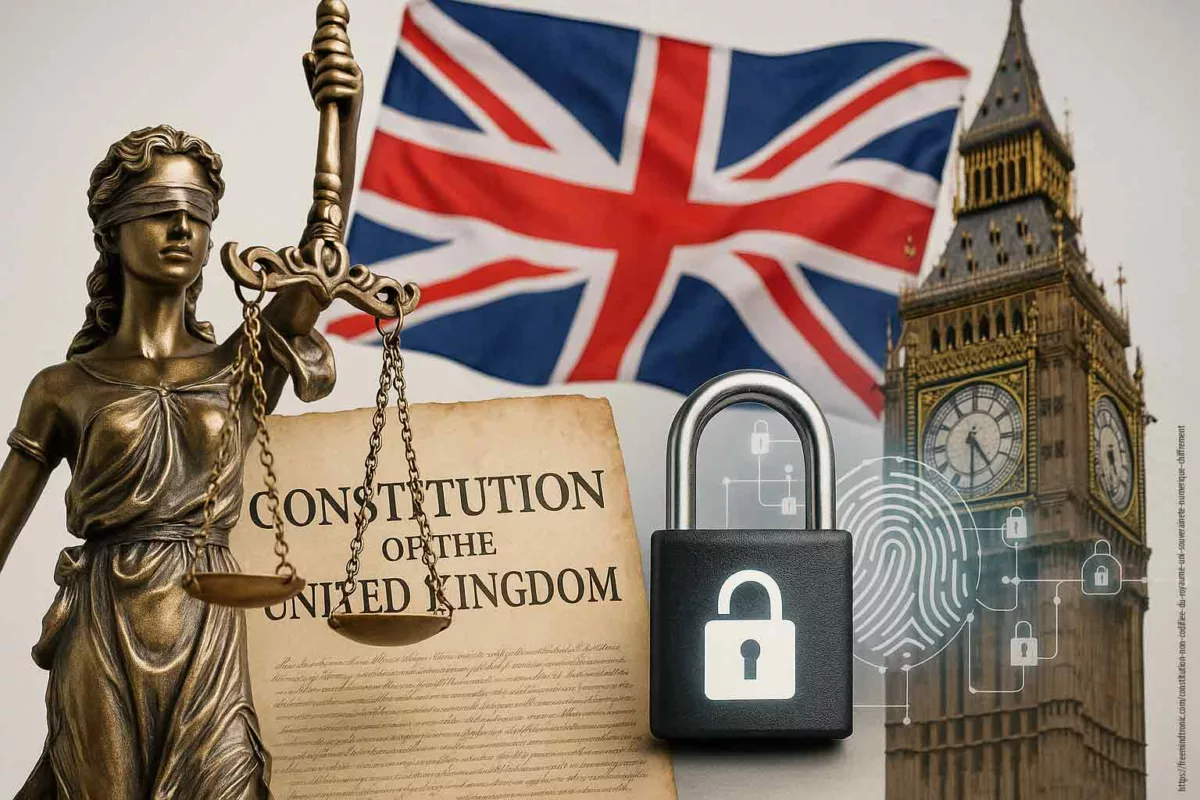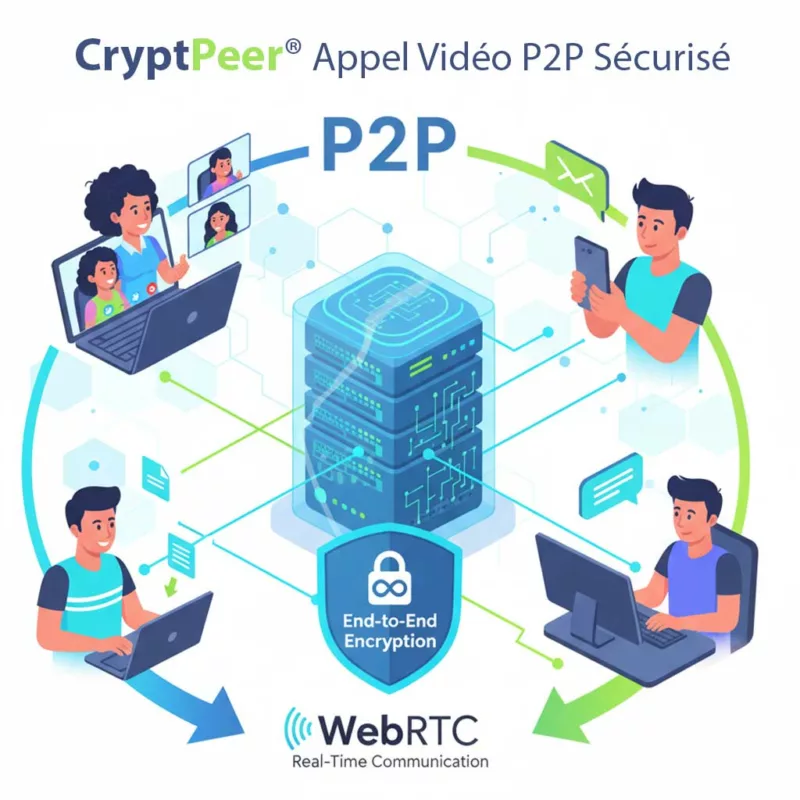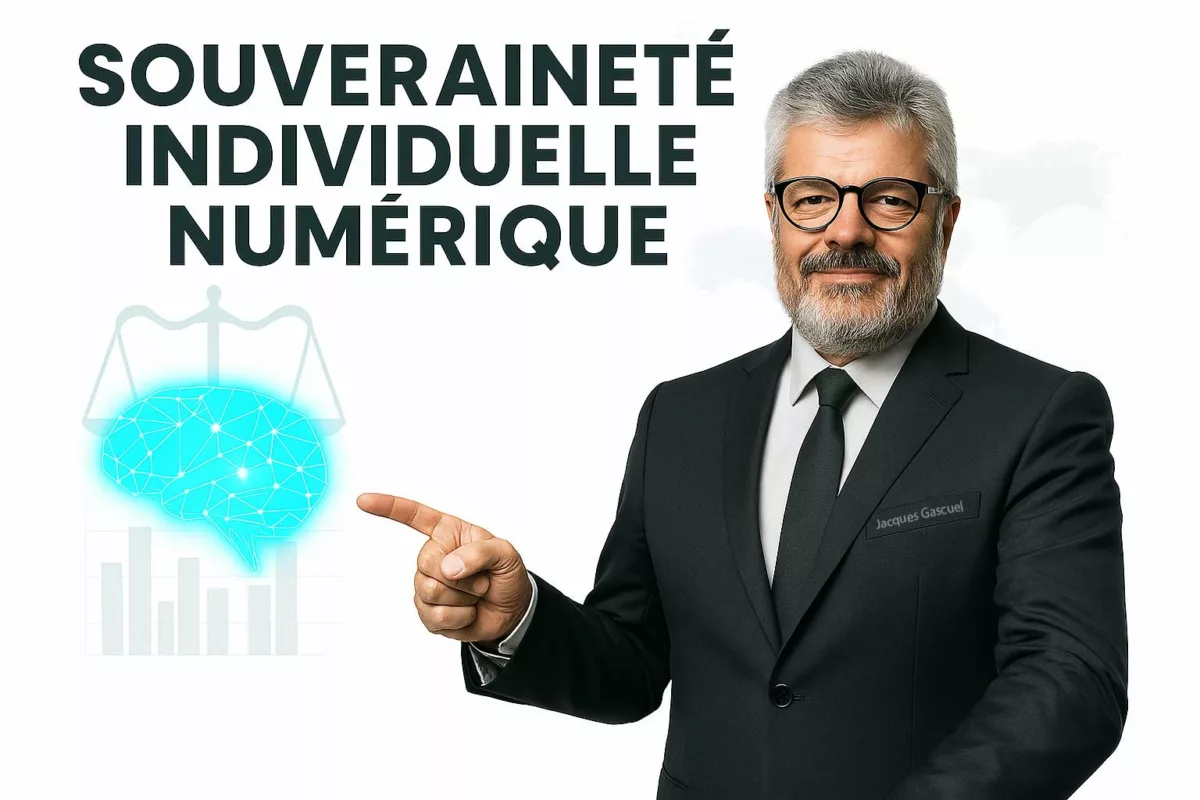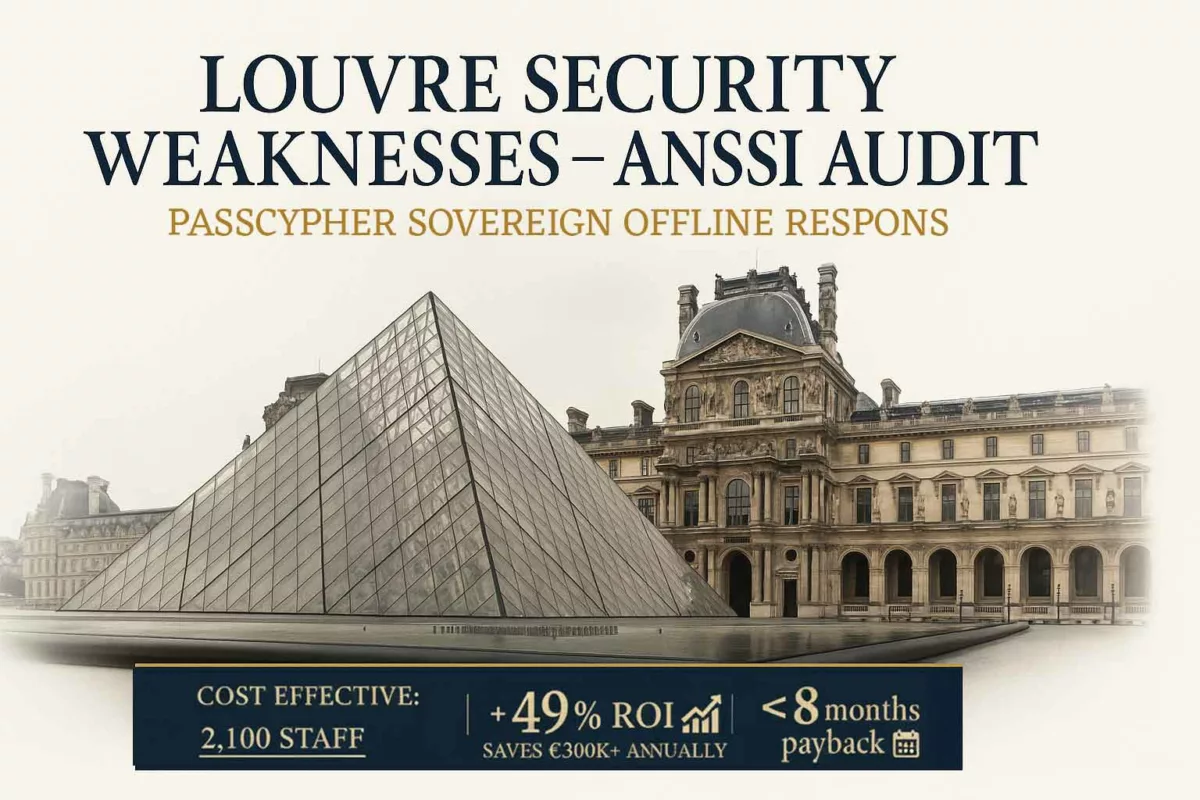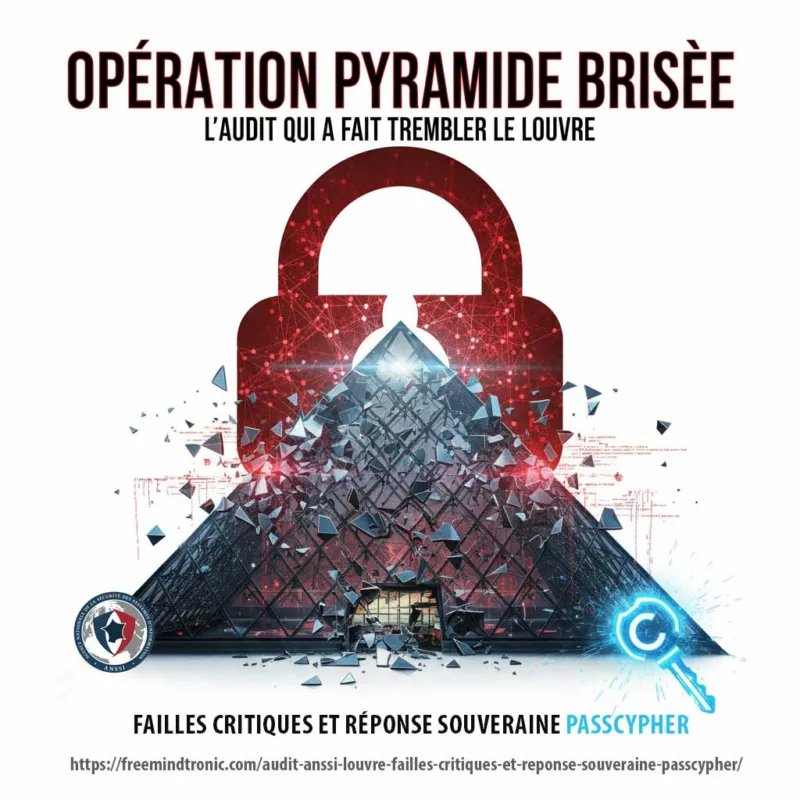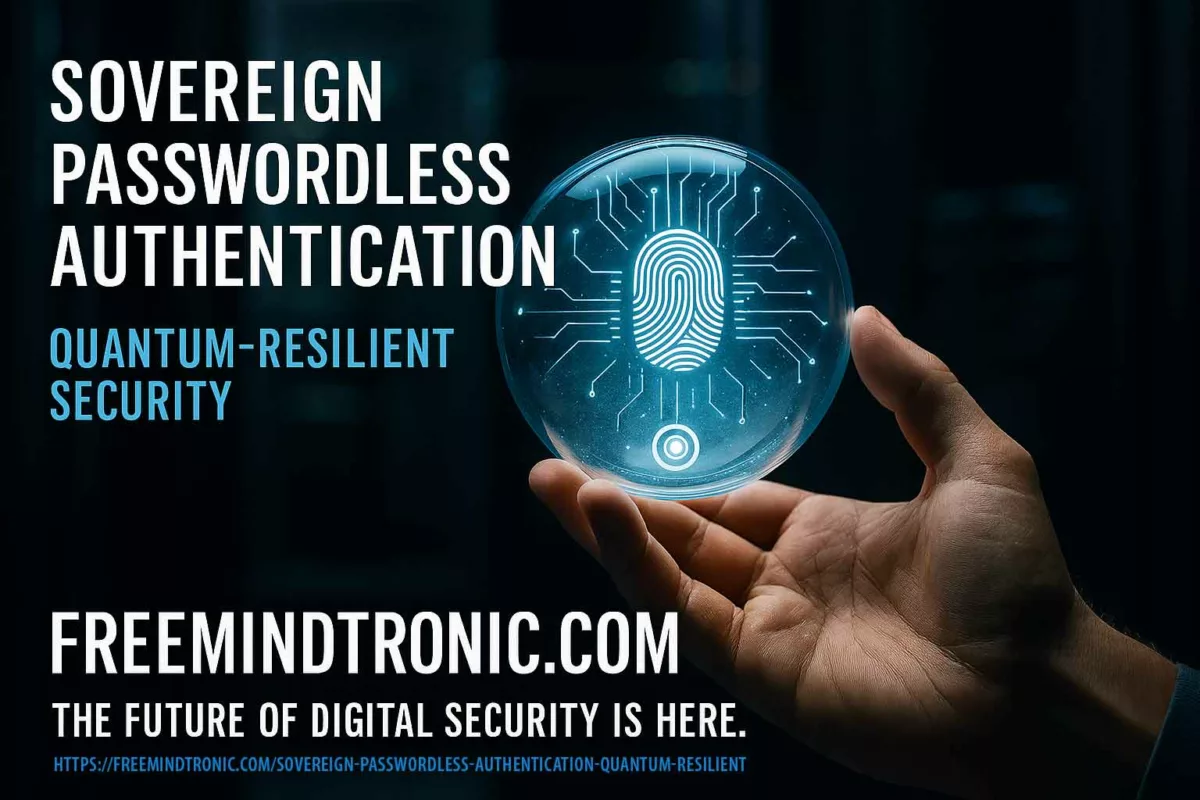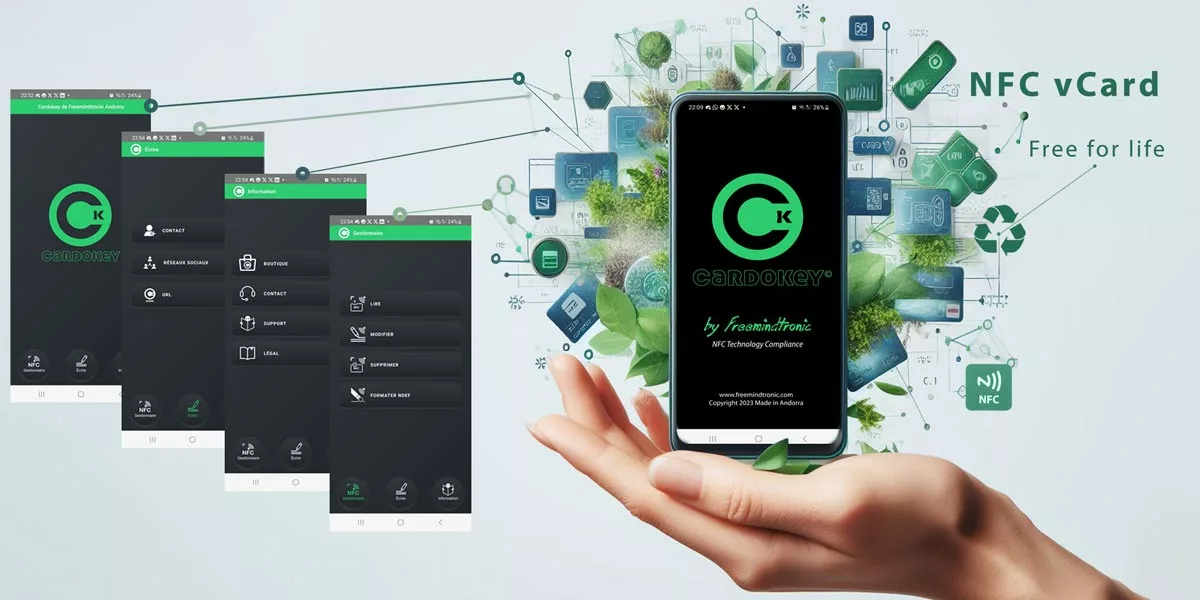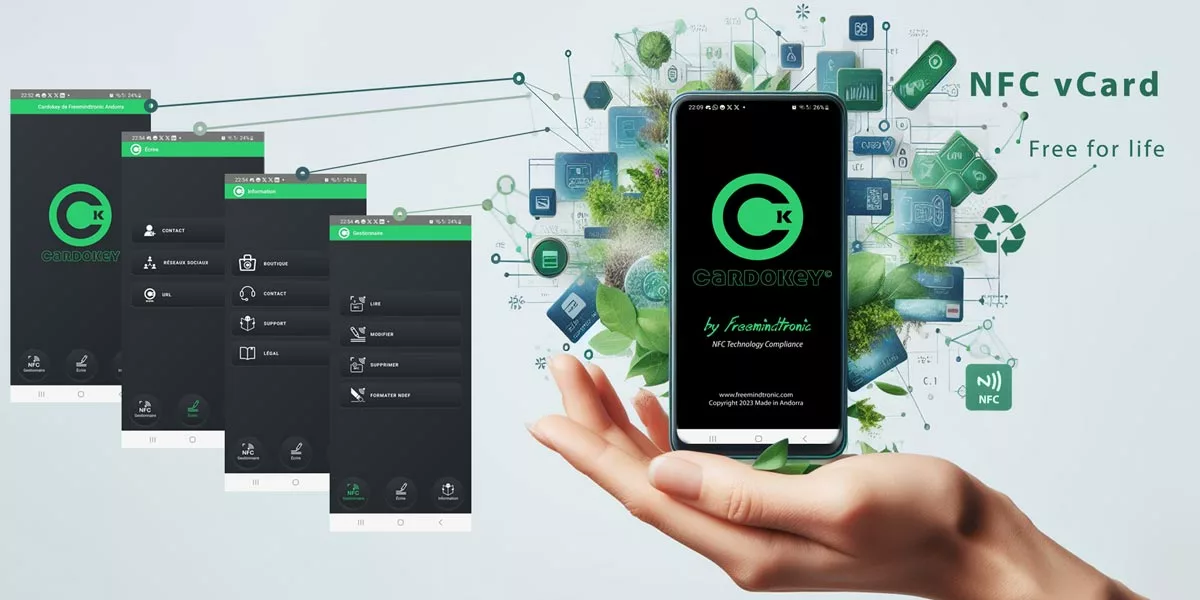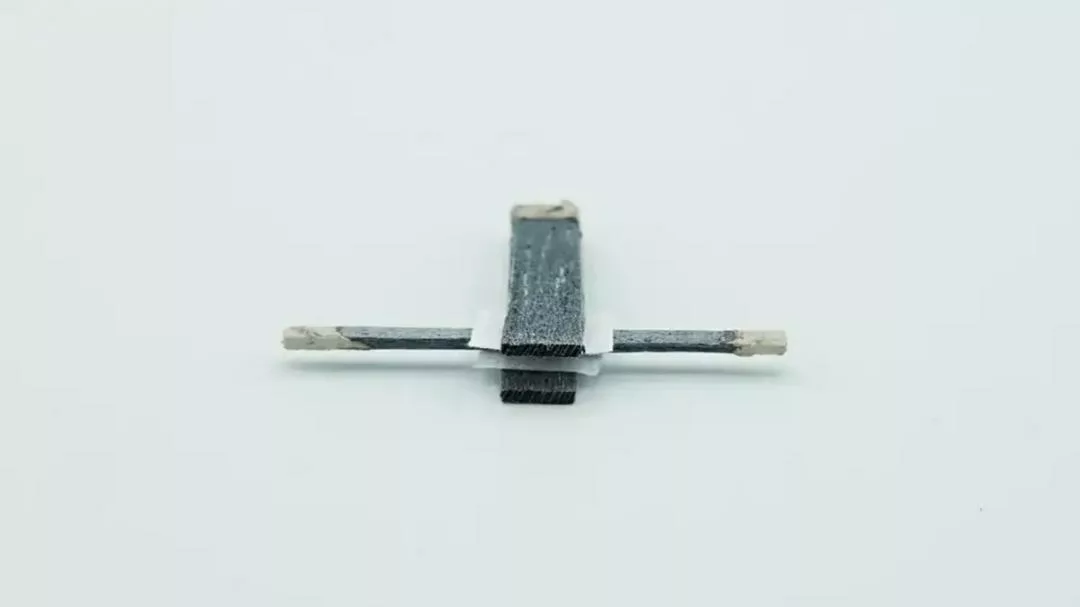Protecting encrypted messaging: the ECHR decision
Encrypted messaging is vital for digital privacy and free speech, but complex to protect. The historic ECHR decision of February 13, 2024 supports strong encryption against government surveillance. We discuss the importance of this decision. You will discover EviCypher NFC HSM encryption technology from Freemindtronic, guardian of this decision but for all messaging services in the world.
Stay informed in our posts dedicated to Cyberculture to follow its evolution thanks to our regularly updated topics
Encrypted messaging: ECHR says no to states that want to spy on them
The historic judgment of the European Court of Human Rights (ECHR) elevates encrypted messaging to the rank of guardian of privacy and freedom of expression. But this also poses security and public order problems. On February 13, 2024, she spoke out in favor of strong encryption, against state interference.
The ECHR has rejected Russian authorities’ request to Telegram, a messaging application, to provide private keys for encrypting its users’ communications, or to install backdoors that would allow authorities to access them. The Court considered that this request violated the rights to privacy and correspondence, as well as freedom of expression, of Telegram users.
The context of the case
The case background Six journalists and human rights activists challenged the request of the Russian authorities to Telegram before the ECHR. They claimed that this request violated their fundamental rights. They relied on Articles 8 and 10 of the European Convention on Human Rights. These articles protect the right to privacy and correspondence, and the right to freedom of expression.
The reasoning of the Court
The Court’s reasoning The Court acknowledged that the request of the Russian authorities had a legitimate aim of national security and crime prevention. However, it found that the interference with the rights of the applicants was not proportionate to the aim pursued. It emphasised that encryption plays a vital role in ensuring the confidentiality of communications and the protection of personal data. It held that the request of the Russian authorities was too general and vague. It did not offer enough safeguards against abuse. It could deter people from using encrypted messaging services.
The Court also noted that encryption helps citizens and businesses to defend themselves against the misuse of information technologies, such as hacking, identity theft, data breach, fraud and undue disclosure of confidential information. It stated that this should be duly taken into account when assessing the measures that could weaken encryption.
The Court further observed that, in order to be useful to the authorities, the information must be decrypted at some point. It suggested that the authorities should use other means to obtain the necessary information, such as undercover operations, metadata analysis and international cooperation.
The consequences of the decision
The decision’s implications The decision of the Court is final and binding for Russia. It has to implement it within a reasonable time. It also has a broader impact. It sets out principles applicable to all member states of the Council of Europe, which comprises 47 countries. It sends a strong signal in favour of the respect of fundamental rights on the internet. It aligns with the position of several international organisations, such as the UN, the EU or the OSCE. They have stressed the importance of encryption for the protection of human rights online.
The official link of the ECHR decision is: AFFAIRE PODCHASOV c. RUSSIE and AFFAIRE PODCHASOV c. RUSSIE and AFFAIRE PODCHASOV c. RUSSIE. You can access it by clicking on the title or copying the address in your browser.
The position of other countries in the world
Encryption of communications is not a consensual topic. Countries have different, even opposite, positions on the issue. Here are some examples:
- The Netherlands have argued for the right to strong encryption. They considered it a human right that must be safeguarded, in the country’s own interest.
- The United States have repeatedly asked technology companies to provide them with access to encrypted data. They invoked the need to fight terrorism. These requests have been challenged by companies, such as Apple. They refused to create backdoors in their encryption systems.
- China adopted a cybersecurity law in 2016. It requires companies to cooperate with authorities to provide encryption keys or means to bypass encryption. This law has been denounced by human rights defenders. They fear that it will be used to strengthen the surveillance and censorship of the Chinese regime.
- The European Union adopted a directive on the protection of personal data in 2016. It recognizes encryption as a technical measure suitable for ensuring the security of data. The EU also supported the development of end-to-end encryption. It funded projects such as the free software Signal, which allows to encrypt calls and messages.
These examples show the divergences and convergences between different countries on the subject of encryption. They also reveal the political, economic and social issues that are at stake.
The world’s reactions to the ECHR decision on Encrypted Messaging
The ECHR decision on Encrypted Messaging has sparked different reactions in the world. Some countries praised the judgment, which boosts the protection of human rights on the internet. Other countries slammed the position of the Court, which undermines, according to them, the judicial cooperation and the national security.
The supporters of the ECHR decision
The Netherlands are among the countries that supported the ECHR decision. They argued for the right to strong encryption, considering it a human right that must be safeguarded, in the country’s own interest. The European Union also backed the Court, reminding that encryption is a technical measure suitable to ensure the security of data, in accordance with the directive on the protection of personal data adopted in 2016. The EU also stressed that it funds the development of end-to-end encryption, through projects such as the free software Signal, which allows to encrypt calls and messages.
The opponents of the ECHR decision
The United States are among the countries that opposed the ECHR decision. They have repeatedly asked technology companies to provide them with access to encrypted data, invoking the need to fight terrorism. These requests have been challenged by companies, such as Apple, which have refused to create backdoors in their encryption systems. China also expressed its disagreement with the Court, stating that encryption of communications fosters the dissemination of illegal or dangerous content, such as terrorist propaganda, child pornography or hate speech. China recalled that it has adopted in 2016 a cybersecurity law, which requires companies to cooperate with authorities to provide encryption keys or means to bypass encryption.
The non-signatories of the European
Convention on Human Rights Some countries have not reacted to the ECHR decision, because they are not signatories of the European Convention on Human Rights. This is the case for example of Russia, which ceased to be a member of the Council of Europe on March 16, 2022, after the invasion of Ukraine decided by the Kremlin. The country no longer participates in the activities of the ECHR. This is also the case of many countries in Africa, Asia or Latin America, which are not part of the Council of Europe and which have not ratified the Convention.
The signatory countries of the European Convention on Human Rights
The European Convention on Human Rights is an international treaty adopted by the Council of Europe in 1950, which aims to protect human rights and fundamental freedoms in the states parties. It entered into force in 1953, after being ratified by ten countries: Belgium, Denmark, France, Ireland, Italy, Luxembourg, the Netherlands, Norway, Sweden and the United Kingdom .
Since then, the Convention has been ratified by 36 other countries, bringing the total number of states parties to 46. They are: Albania, Germany, Andorra, Armenia, Austria, Azerbaijan, Bosnia and Herzegovina, Bulgaria, Cyprus, Croatia, Estonia, Finland, Georgia, Greece, Hungary, Iceland, Latvia, Liechtenstein, Lithuania, Malta, Moldova, Monaco, Montenegro, North Macedonia, Poland, Portugal, Romania, Russia, San Marino, Serbia, Slovakia, Slovenia, Spain, Czech Republic, Turkey and Ukraine.
All these countries recognize the jurisdiction of the European Court of Human Rights (ECHR), which is in charge of ensuring the respect of the Convention. The ECHR can be seized by any person, group of persons or non-governmental organization who claims to be a victim of a violation of the Convention by one of the states parties. The ECHR can also be seized by a state party who alleges that another state party has violated the Convention. The ECHR delivers judgments that are final and binding for the states parties.
An innovative and sovereign alternative: the EviCypher NFC HSM technology
Facing the challenges of encryption of communications, some users may look for an alternative more innovative and sovereign than the traditional messaging applications. This is the case of the EviCypher NFC HSM technology, developed by the Andorran company Freemindtronic. This technology makes it possible to generate, store, manage and use AES-256 encryption keys to encrypt all communication systems, such as WhatsApp, sms, mms, rcs, Telegram, webmail, email client, private messaging like Linkedin, Skype, X and even via postal mail with encrypted QR code messages, etc.
EviCypher NFC HSM: A Secure and Innovative Solution for Encrypted Messaging
Firstly, it guarantees the confidentiality and integrity of data, even if the messaging services are compromised for any reason, including by a court order. Indeed, it is physically impossible for Freemindtronic, the manufacturer of the DataShielder products, to provide encryption keys generated randomly by the user. These keys are stored encrypted in AES-256 via segmented keys in the HSM and NFC HSM. Only the user holds the decryption keys, which he can erase at any time.
Secondly, it preserves the anonymity and sovereignty of users, because it works without server and without database. It does not require internet connection, nor user account, nor phone number, nor email address. It leaves no trace of its use, nor of its user. It does not depend on the policies or regulations of the countries or companies that provide the communication services.
Thirdly, it offers an extreme portability and availability of encryption keys, thanks to the NFC technology. The user can carry his encryption keys on a physical support, such as a card, a bracelet, a key ring, etc. He can use them with any device compatible with NFC, such as a smartphone, a tablet, a computer, etc. He can also share them with other trusted users, in a simple and secure way.
Lastly, it is compatible with the EviCore NFC HSM or EviCore HSM technology, which allows to secure the access to equipment and applications. The user can thus use the same physical support to encrypt his communications and to authenticate on his different digital services.
The EviCypher NFC HSM technology guarantees the confidentiality and integrity of data, even if the messaging services are compromised for any reason, including by a court order. Indeed, it is physically impossible for Freemindtronic, the manufacturer of the DataShielder products, to provide encryption keys generated randomly by the user. These keys are stored encrypted in AES-256 via segmented keys in the HSM and NFC HSM. Only the user holds the decryption keys, which he can erase at any time.
Transforming Encrypted Messaging with EviCypher NFC HSM
The European Court of Human Rights (ECHR) decisively highlights encrypted messaging’s vital role in protecting privacy and freedom of speech. EviCypher NFC HSM, aligning perfectly with these principles, emerges as a pioneering solution. It confronts the challenges of state surveillance and privacy breaches head-on, providing unmatched defense for private communications. EviCypher NFC HSM goes beyond the ECHR’s conventional security and privacy requirements. It crafts an inviolable communication platform that honors users’ privacy rights profoundly. With its innovative approach, EviCypher NFC HSM introduces new data protection standards, forging a robust barrier against government intrusion.
Global Reach and User Empowerment
EviCypher NFC HSM’s technology has a broad global impact, seamlessly addressing the varied encryption landscapes worldwide. It provides a consistent answer to privacy and security issues, disregarding geographic limits. This global applicability makes EviCypher NFC HSM an indispensable tool for users worldwide, solidifying its position as a guardian of global privacy.
Despite potential skepticism about new technologies, the user-friendly and accessible nature of EviCypher NFC HSM aims to dispel such doubts. It promotes wider adoption among those seeking to enhance their communication security. Its compatibility with diverse devices and straightforward operation simplify encryption, facilitating an effortless shift towards secure communication practices.
EviCypher NFC HSM: A Beacon of User Autonomy
EviCypher NFC HSM technology deeply commits to empowering users. It allows individuals to generate, store, and manage their encryption keys independently, giving them direct control. This autonomy not only improves data security but also demonstrates a strong commitment to protecting users’ fundamental rights. It resonates with the values emphasized across the discussion, providing an effective way to strengthen online privacy and security. EviCypher NFC HSM marks a significant leap forward in the movement towards a more secure and private digital landscape.
This technologie HSM stands out as a state-of-the-art, self-sufficient solution, perfectly in line with the ECHR’s decisions and the worldwide need for secure encrypted communication. It leads the charge in advancing user autonomy and security, signaling a crucial evolution in encrypted messaging towards unparalleled integrity.
Incorporating EviCypher’s distinctive features—its operation without servers or databases, interoperability, and backward compatibility with all current communication systems, such as email, SMS, MMS, RCS, and social media messaging, even extending to physical mail via encrypted QR codes—highlights its adaptability and innovative spirit. EviCypher’s resistance to zero-day vulnerabilities, due to encrypting communications upfront, further underscores its exceptional security. Operating anonymously and offline, it provides instant usability without requiring user identification or account creation, ensuring seamless compatibility across phone, computer, and communication systems.
Summary at encrypted messaging
Encrypted Messaging is crucial for the digital society. It protects internet users’ privacy and freedom of expression. But it also challenges security and public order. The European Court of Human Rights (ECHR) supported strong encryption on February 13, 2024. It defended the right to encryption, against states that want to access it. Several international organizations agree with this position. They emphasize the importance of encryption for human rights online. However, the ECHR decision sparked diverse reactions worldwide. Different countries have different views on encryption.
Our conclusion on Encrypted Messaging
EviCypher NFC HSM technology is an innovative and sovereign alternative for Encrypted Messaging. Users can generate, store, manage and use AES-256 encryption keys. They can encrypt all communication systems, such as WhatsApp, sms, mms, rcs, Telegram, webmail, email client, etc. EviCypher NFC HSM technology ensures data confidentiality and integrity. It works even if messaging services are compromised. It preserves users’ anonymity and sovereignty. It does not need server or database. It offers extreme portability and availability of encryption keys, thanks to NFC technology. It is compatible with EviCore NFC HSM or EviCore HSM technology. They secure access to equipment and applications.
DataShielder products provide EviCypher NFC HSM technology. They are contactless encryption devices, guardians of keys and secrets. Freemindtronic, an Andorran company specialized in NFC security, designs and manufactures them.
